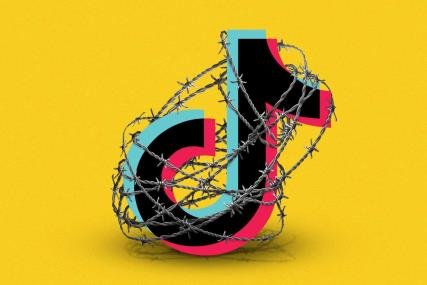TikTok, the popular short-form video platform, has faced growing scrutiny and concerns worldwide. The debate over whether TikTok should be banned has intensified, with governments and individuals raising various concerns about its data privacy, national security, and user influence. This blog post will delve into the complexities of the TikTok ban discussion, examining the arguments for and against it and the potential consequences of such a move.
The Rise of TikTok
The explosive growth of TikTok has been nothing short of extraordinary. The app has captured the attention of billions of users worldwide, offering a platform for creativity, entertainment, and social connection. Its algorithm, curates personalized content feeds, has proven highly effective in keeping users engaged. However, this rapid growth has also raised questions about the app’s impact on society, particularly among young people.
Concerns About Data Privacy
One of the primary concerns surrounding TikTok is its data privacy practices. The app collects vast user data, including location information, browsing history, and device identifiers. This data is then shared with TikTok’s parent company, ByteDance, based in China. Critics argue that this raises concerns about the potential for Chinese authorities to access and exploit this data, posing a threat to national security.
National Security Implications
Beyond data privacy, TikTok has also been accused of posing a national security risk. Some governments have expressed concerns about the app’s ability to spread misinformation and propaganda, particularly during political unrest. Additionally, there are fears that TikTok could be used to spy on users or collect sensitive information on behalf of foreign powers.
The Global Debate
The debate over TikTok’s ban has taken place globally. Countries such as India, the United States, and Australia have considered or implemented restrictions on the app. Data privacy concerns, national security risks, and cultural factors have driven these decisions. The global nature of the debate highlights the complex challenges associated with regulating internet platforms in the modern era.
The Impact on Users and Businesses
A potential TikTok ban would have significant consequences for both users and businesses. For individuals, it would mean losing access to a popular social media platform and the communities they have built within it. Businesses that rely on TikTok for marketing and advertising would also be affected, potentially leading to financial losses and disruption.
The Role of Governments
Governments play a crucial role in addressing the concerns surrounding TikTok. They can implement regulations to protect user data, enhance national security, and promote responsible online behavior. However, balancing safeguarding national interests and preserving freedom of expression is essential.
Alternatives to TikTok
As the debate over TikTok’s ban continues, many users and businesses are exploring alternative platforms. Apps such as Instagram Reels, YouTube Shorts, and Snapchat have emerged as potential competitors. While these platforms offer similar features, it remains to be seen whether they can capture the same engagement and user base as TikTok.
Conclusion
The future of TikTok is uncertain, but the debate over its potential ban will likely persist. The app’s rapid growth and global popularity have made it a target for scrutiny and regulation. While concerns about data privacy and national security are valid, it is essential to consider the potential consequences of a ban on users, businesses, and freedom of expression. As governments and policymakers grapple with these complex issues, finding solutions that protect national interests while promoting a healthy and vibrant digital ecosystem is crucial.
FAQs
- Is TikTok banned in the United States? TikTok is not currently prohibited in the United States. However, ongoing discussions and investigations have been conducted regarding its data privacy and national security implications.
- What are the main reasons for banning TikTok? The primary reasons for considering a TikTok ban include concerns about data privacy, national security, and the app’s potential influence on young users.
- What are the alternatives to TikTok? Some popular options for TikTok include Instagram Reels, YouTube Shorts, and Snapchat.
- How would a TikTok ban impact businesses? A ban on TikTok could significantly impact businesses that rely on the platform for marketing, advertising, and reaching their target audience.
What possible repercussions may a TikTok ban have? A TikTok ban could lead to job losses, economic disruption, and a loss of freedom of expression. Additionally, it creates a vacuum that other platforms may fill with less stringent privacy and security measures.

